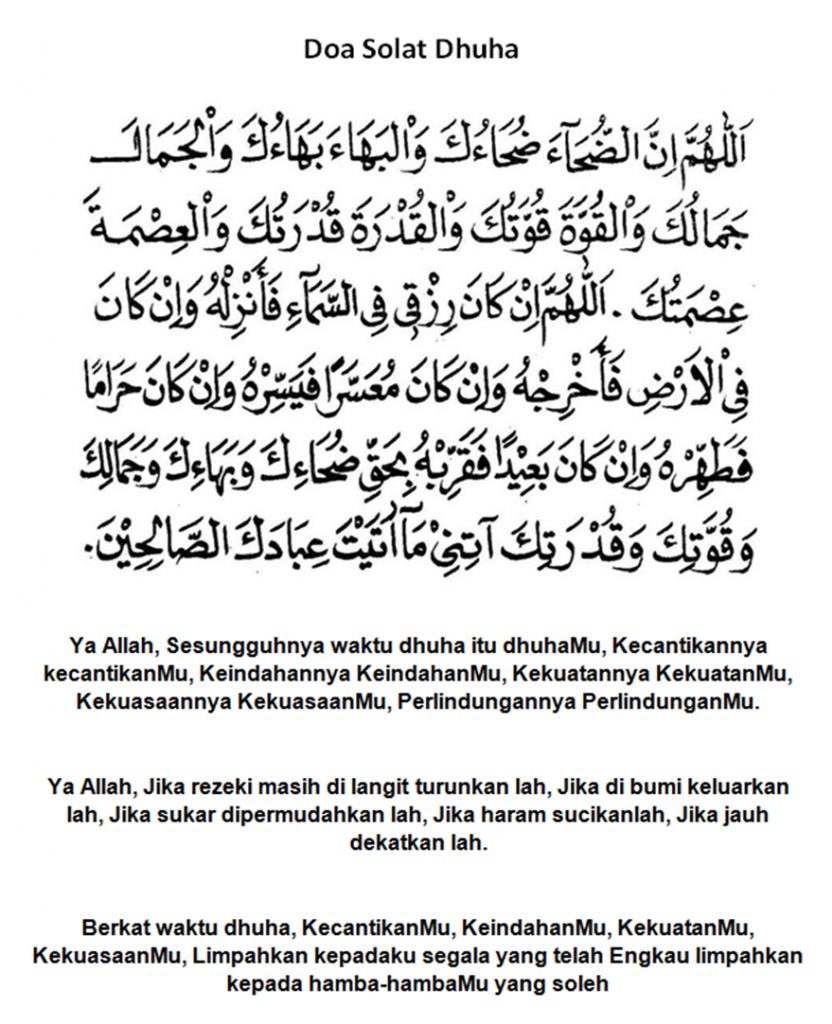Finding Peace and Guidance: Exploring the Power of Post-Prayer Supplications
Have you ever felt a sense of peace wash over you as you finish a heartfelt conversation with someone you love? That sense of connection, of sharing your hopes and fears, can leave you feeling lighter and more hopeful. In many ways, that’s what offering supplications after prayer, or doa selepas solat in Malay, feels like for Muslims around the world. It’s a direct line to communicate with the Divine, to express gratitude, seek guidance, and find solace.
In the Islamic faith, prayer is much more than a ritual; it’s a sacred space where we can connect with the Creator on a deeper level. While the five daily prayers have set structures, doa selepas solat is a beautiful opportunity to speak from the heart. It’s a time to reflect on our lives, acknowledge our shortcomings, and ask for blessings, strength, and direction.
The beauty of this practice lies in its simplicity. There are no complicated rituals or specific words required. It’s about opening your heart and speaking to Allah sincerely, whether you choose to use traditional Arabic supplications or your own words. Many Muslims find comfort in knowing that this is a practice encouraged by the Prophet Muhammad (peace be upon him) himself. He emphasized the importance of making dua, or supplications, after prayer, as it’s believed to be a time when our prayers are most likely to be answered.
The history of doa selepas solat is interwoven with the very foundation of Islam. From the earliest days of the Muslim community, the Prophet Muhammad (peace be upon him) would teach his followers about the significance of making supplications after prayers. He taught that this was a time of heightened spiritual connection, where our pleas would be heard and answered by Allah. This tradition has been passed down through generations, becoming an integral part of Muslim life.
The practice of doa selepas solat offers a multitude of benefits. It’s an opportunity to cultivate gratitude, seeking forgiveness, and asking for strength in times of need. The act of bowing your head in humility, acknowledging your dependence on a Higher Power, can bring about a profound sense of peace and tranquility. Moreover, engaging in heartfelt supplications can foster a deeper connection with Allah, strengthening your faith and bringing you closer to Him.
In a world that often feels chaotic and uncertain, taking a few moments after prayer to connect with the Divine can be a source of immense comfort and guidance. It’s a reminder that we are not alone in our struggles and that there is a Higher Power who listens to our every plea.
Advantages and Disadvantages of Doa Selepas Solat
While the concept of prayer is generally associated with positive aspects, it's helpful to approach this topic with a balanced perspective. Here's a look at some potential advantages and disadvantages of incorporating doa selepas solat into your life:
| Advantages | Disadvantages |
|---|---|
|
|
Ultimately, the practice of doa selepas solat is a deeply personal one. Its impact and meaning vary from individual to individual, shaped by their faith, experiences, and relationship with Allah.
Frequently Asked Questions About Doa Selepas Solat
Navigating the practices within Islam can lead to questions. Here are answers to some common inquiries about doa selepas solat:
1. Are there specific times when doa selepas solat is more likely to be accepted?
While any time is a good time for sincere supplication, Islamic teachings highlight certain times as especially blessed, such as the last third of the night and between the call to prayer (adhan) and the start of the prayer (iqamah).
2. What is the proper etiquette for making doa selepas solat?
Begin by facing the qibla (direction of prayer) with raised hands and a clean state. Start with praise for Allah, followed by sending blessings upon the Prophet Muhammad (peace be upon him), and then proceed with your personal supplications.
3. Can I make doa in my own language?
Yes, Allah understands all languages. Speak from your heart with sincerity, whether you use Arabic or your native tongue.
4. What are some recommended supplications to say after prayer?
There are many authentic supplications transmitted from the Prophet Muhammad (peace be upon him). You can find collections of these in Islamic books or online resources.
5. Is it permissible to make doa for others?
Absolutely! It is highly encouraged to make doa for family, friends, the Muslim community, and even humanity as a whole.
6. What if I don't see my prayers being answered right away?
Know that Allah hears all prayers, and His wisdom determines the best time and way to respond. Continue making dua with patience and trust in His plan.
7. What is the significance of raising our hands during doa?
Raising our hands is a gesture of humility and dependence, acknowledging our need for Allah's mercy and blessings.
8. Can I make dua silently?
Yes, both audible and silent supplications are acceptable. Choose the approach that allows you to connect most sincerely with Allah.
Conclusion
In the tapestry of Islamic practices, doa selepas solat holds a special place, offering a bridge between the spiritual and the everyday. It’s a reminder that even amidst life’s busyness, we can always turn to our Creator for guidance, solace, and strength. As we engage in this beautiful practice, we open ourselves to the possibility of profound peace, deeper connection, and a life imbued with greater meaning and purpose. The next time you complete your prayer, take a moment to pause, reflect, and pour your heart out to Allah. You might be surprised by the peace and clarity you find in those quiet moments of connection.
Unveiling the power of chapter 1 a guide to research success
Nearest tube station to madame tussauds
Research all technologies stellaris













